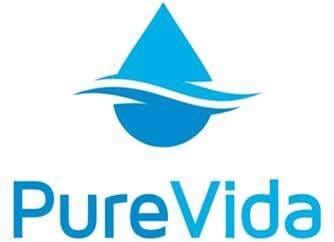1. Ensures Patient and Staff Safety
- Removes Health Risks: RO systems effectively filter out pathogens (e.g., bacteria, viruses) and harmful contaminants like lead, nitrates, and pharmaceuticals, ensuring water meets the rigorous safety standards required in healthcare.
- Compliance with Infection Control Standards: The system minimizes contamination risks compared to bottled water dispensers, which can harbor bacteria on external surfaces and in storage.
2. Supports Sterile Environments
- Reduces Airborne Contaminants: Unlike bottle dispensers that require bottle changes and can introduce airborne particles, bottle-less systems maintain a closed, sterile water delivery process.
- Supplement for Equipment Cleaning: The high purity of RO-filtered water is ideal for rinsing and cleaning medical instruments, ensuring no mineral or chemical residue is left behind.
3. Improves Patient Care
- Patient Hydration: High-quality, safe water is crucial for patient comfort, especially for those waiting for extended periods or undergoing treatments like dialysis or chemotherapy.
- Confidence in Quality: Providing visibly modern, bottle-less systems reassures patients about the healthcare facility’s commitment to cleanliness and safety.
4. Operational and Cost Efficiency
- Eliminates Cross-Contamination from Bottles: Traditional bottled systems can involve handling multiple surfaces, increasing the risk of contamination in a clinical setting.
- Streamlined Supply Management: By removing the need to stock and replace water bottles, healthcare administrators save time and resources.
- Cost Savings for Consumables: RO systems require only periodic filter replacements, reducing recurring costs compared to bottled water delivery services.
5. Promotes Environmental Responsibility
- Reduces Single-Use Plastic Waste: In an industry increasingly focused on sustainability, using a bottle-less water system helps align with green initiatives and reduces the facility’s carbon footprint.
- Energy-Efficient Design: RO systems consume less energy compared to producing, shipping, and storing bottled water, supporting broader sustainability goals.
6. Hygiene and Convenience
- Hands-Free Operation: Many RO bottle-less systems come with touchless or antimicrobial dispensing features, reducing the spread of germs in high-traffic areas.
- No Heavy Lifting or Storage: Staff are no longer required to handle heavy water bottles or dedicate storage space, minimizing workplace injuries and increasing efficiency in busy environments.
7. Tailored for Healthcare Needs
- Customizable Water Temperature: Options for hot water for tea or soup, cold water for hydration, and ambient water for medical use ensure all needs are met within the facility.
- High-Capacity Systems: Designed to handle high patient and staff traffic, RO systems provide a continuous supply of purified water even during peak hours.
8. Enhanced Facility Image
- Modern, Professional Appearance: A sleek, bottle-less RO system demonstrates a healthcare facility’s commitment to cutting-edge, patient-centered care and environmental responsibility.
In summary, a reverse osmosis bottle-less water system supports the healthcare industry’s priorities of safety, hygiene, operational efficiency, and sustainability while enhancing patient and staff experiences. This makes it an ideal investment for hospitals, clinics, dental practices, and other medical facilities.
If you would like to try any of our systems out for free, please let us know.



